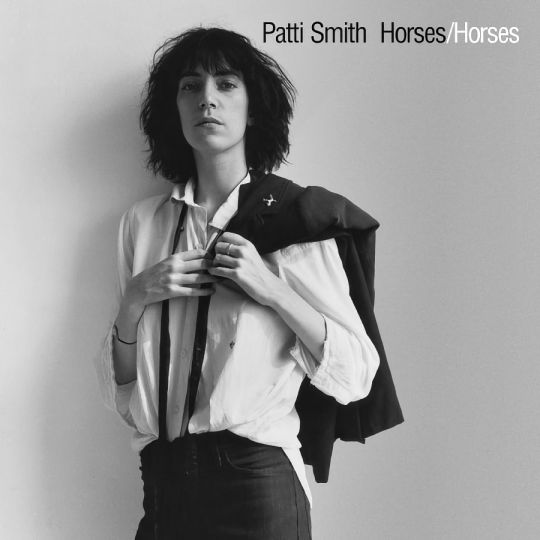#birdland
Photo
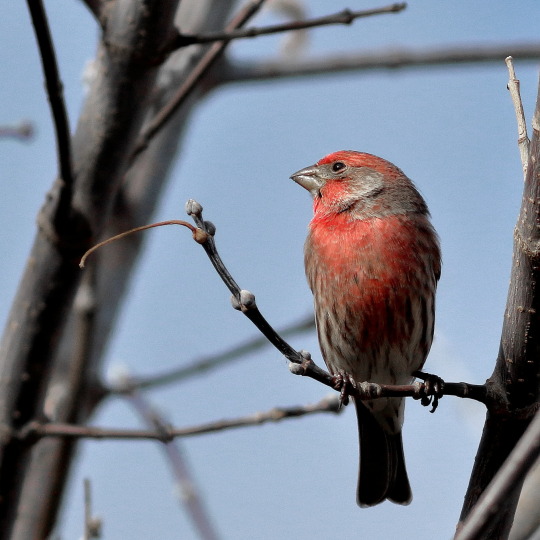
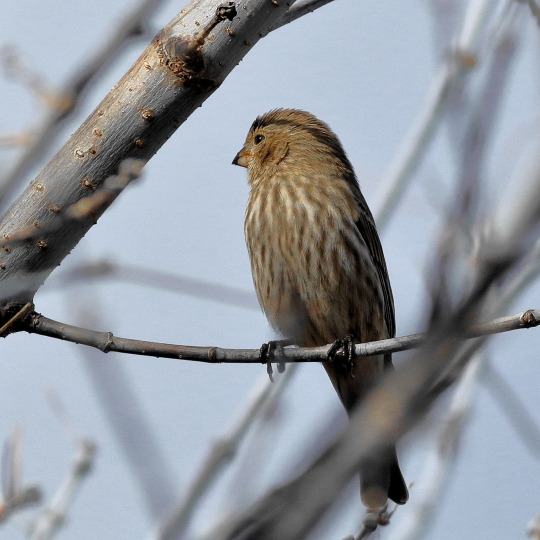
A mated pair of House finches spend a warm autumn day frolicking from branch-to-branch.
#midwest#autumn photography#house finch#birds#birding#Birdwatching#Birdworld#birdland#birdlovers#birdlr#wildbirdphotography#birdphotography#birdpics#birdposting#bird photos#wildlife photography#nature photography#nature photos#wildlifephotography#wild animals#wildlife#wildlife photos#wildbirds#animalphotography#vogelfotografie#oiseau#ave#ptaki#photographers of tumblr#original photography
3K notes
·
View notes
Text
I have a huge soft spot for text based games. just played birdland and loved it, but want to recommend some of my favourites -
choice of the dragon - short and fun game about being a dragon, defeating other dragons, plundering kingdoms, fighting wizards, etc. it's pretty short but you can play it multiple times to complete different achievements! they have a number of other text based games on the website but this is my favourite.
a dark room - you wake up in a dark room. a forest surrounds you. you can start by gathering wood, making traps, and work your way up to exploring the surrounding environment. doublespeak games has a bunch more games that I haven't explored much - penrose seems like another cool and interesting game but i haven't played it through.
fallen london - you start off in the prison of new newgate, and explore the hidden magic city which is victorian london. you can complete quests and storylines from there. they also do themed updates around different seasons!
also a short summary of birdland - which is more of a multimedia story about bridget, a girl who doesn't like summer camp and has strange dreams about birds (and maybe some strange feelings towards girls as well)
lastly, have to send some love to butterfly soup - not a browser game but a pay-what-you-wish downloadable game - which is another visual novel about queer girls growing up in california and making friendships over baseball. I love it so much and I periodically go through the whole thing!! also there's a sequel which is also so so good I love it very much!!
28 notes
·
View notes
Text

#weather report#birdland#heavy weather#jaco pastorius#wayne shorter#joe zawinul#manolo badrena#alex acuna
34 notes
·
View notes
Text

#mendezilustracion#almeriaartistica#art#illustration#artists on tumblr#illustrator#ilustracion#illustrators on tumblr#dibujo#almeriaart#pajaros#birdland#bird#birds#wild animals#animali#animales#animal#animals#animale#artworks#arte#artist#artistas#artwork#my artwrok#artworld#dibujó#dibujos#dibujando
31 notes
·
View notes
Text
Summer is too hot and I don't know what to do with myself, so we're having an Andrew Scott (and characters played by Andrew Scott) looking cool in sunglasses megapost, just for fun and in no particular order.
Gary Essendine, Present Laughter
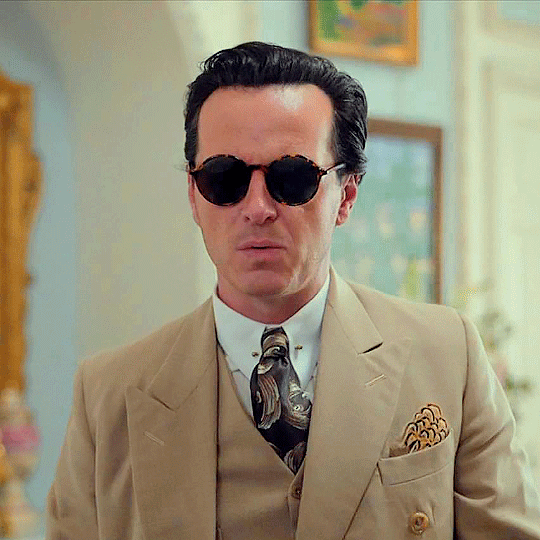
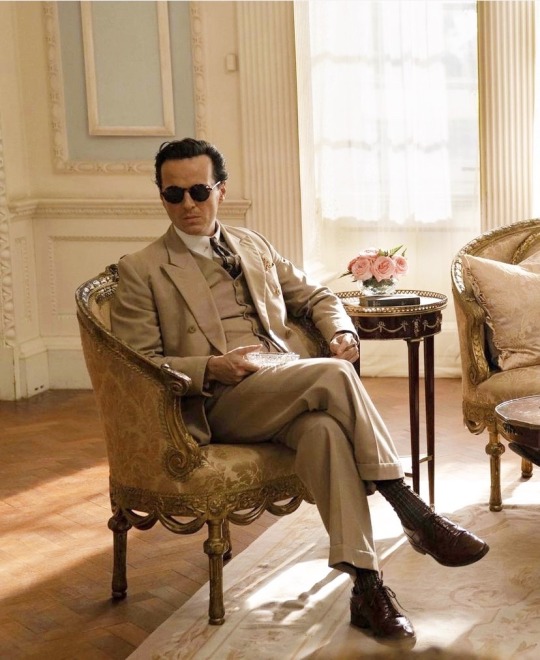
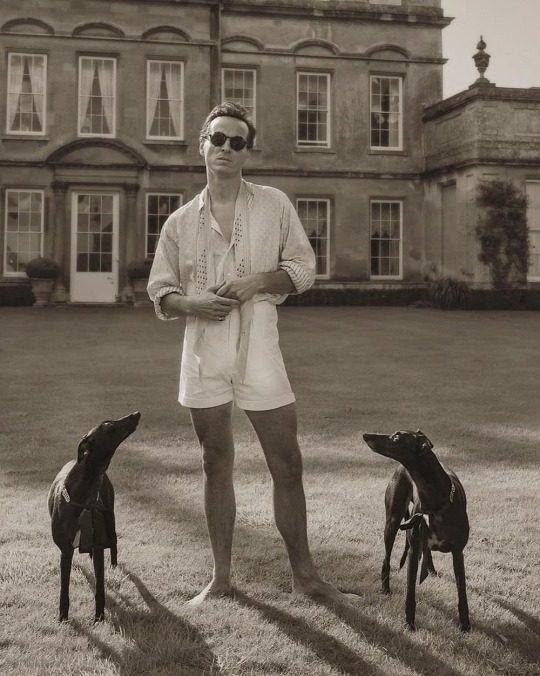
Lord Merlin, The Pursuit of Love
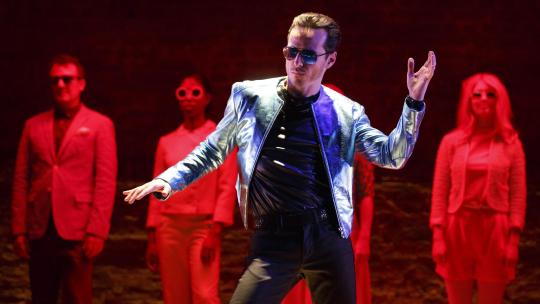
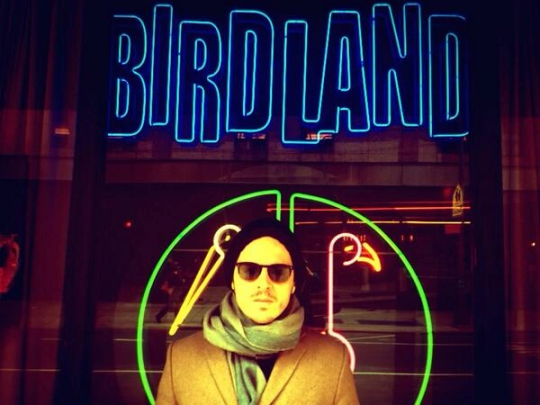
Paul ^, Andrew Scott, Birdland
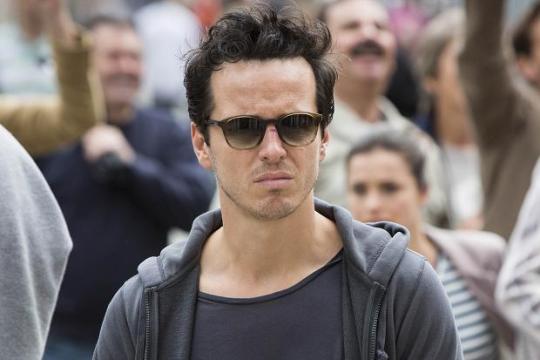

Mark Nicholas, The Town
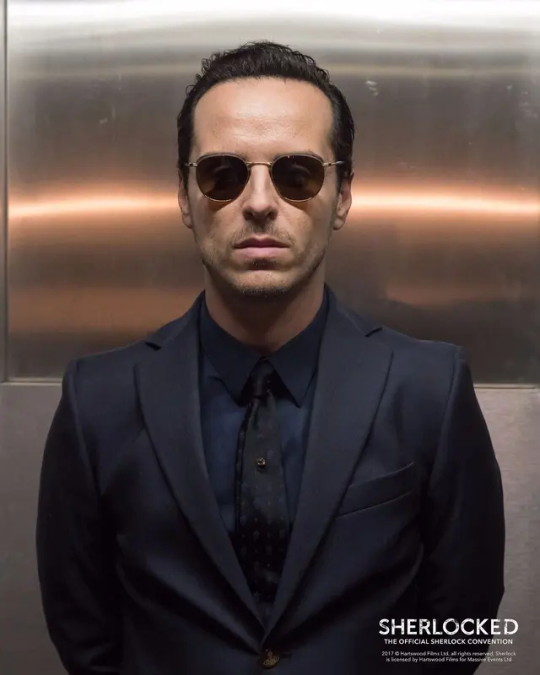

Jim Moriarty, Sherlock (obviously)
(Also they may be my favorite sunglasses he's ever worn)
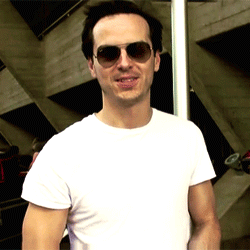
Well that's all the pictures I'm allowed in one post, so maybe a part two later. (There are a lot more sunglasses pics!) BYE! 😘😎
Now with Part 2, because summer can fuck right off.
#andrew scott#garry essendine#present laughter#lord merlin#the pursuit of love#paul#birdland#mark nicholas#the town#jim moriarty#sherlock#those sunglasses are so hot#andrew scott in sunglasses appreciation post#part 1
134 notes
·
View notes
Text
LOOK AT THIS POST ABOUT WOMEN
Now that I have your attention, I'm gonna pitch this to you:
Hannigram but with toxic dykes. And they're transgender. And they have sometimes consensual sloppy nasty sex.
If you like the sound of this, you should read GETEATEN, a fic by Meee :3 about a nervous little freak named Noah being tormented for months by her lover Eden, eventually leading to [REDACTED!!!!!!]
5/5 chapters, roughly 5k words, horribly explicit. Opening words ⬇️

If that doesn't interest you, try out BIRDLAND!!!!!!, a work in progress little thing about the same two women, but in a time where they both are normal and can enjoy things like "cuddling" and "a nice dinner".
1/? chapters. To be 7k words (currently 660). Opening words ⬇️
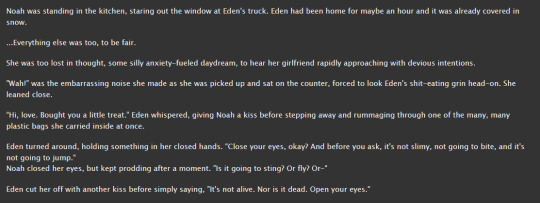
#not tagging this at all i trust my mutuals to please god help a girl out . Pleaes. Pleease. my little projects.#geteaten#birdland
33 notes
·
View notes
Text
IFComp 2023 is almost here, which means I've just hit kind of an unbelievable milestone: Bell Park, Youth Detective was released 10 years ago today, on September 29th 2013.
It's strange to think back on this decade and realize how much of the joy and love in my life flows from my decision to rush out a half-baked draft of a twine game. It's a total 6/10, but I'm still proud of it and I'm glad I put it out there.
Thank you to everyone who has stuck with Bellwoods and the weird little universe she inhabits. I'm probably gonna keep making one of these every three years until I die. So, you know, look forward to that.
(works cited: Bell Park, Youth Detective · BIRDLAND · Known Unknowns · BOAT PROM · The Grown-Up Detective Agency)
#bell park youth detective#birdland#known unknowns#boat prom#the grown up detective agency#bell park#interactive fiction#me#slowly turning into dust (gratefully)
53 notes
·
View notes
Text
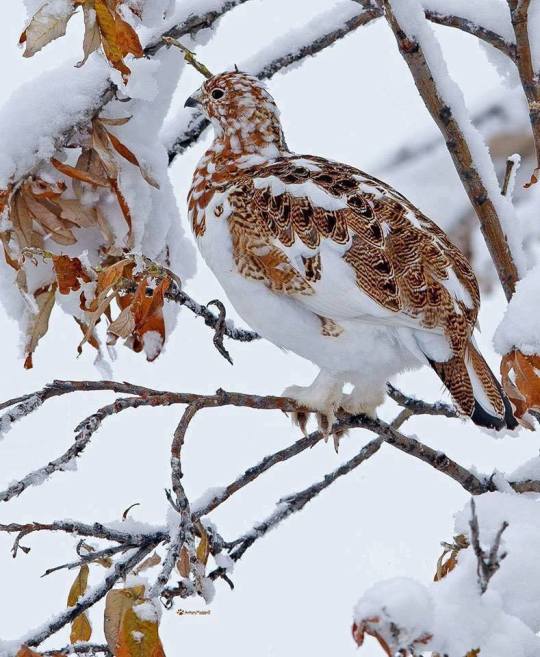
Willow Ptarmigan (Lagopus lagopus), in transitional plumage, family Phasianidae, Alaska
📷@ Kristina Ellis
#birds#birdphotography#wildlife#bird photography#birdwatching#birdlovers#birdland#birdlife#birds captures
40 notes
·
View notes
Text
'Fleabag’s hot priest is about to take on his most liberating role yet: a one-man show of Chekhov’s Uncle Vanya in which he will play all nine roles, male and female. He loves taking risks, he says. It seems to be paying off…
I last saw Andrew Scott in the flesh eight years ago. I was sitting in the gloom at the top of what used to be St Martin’s School of Art in the Charing Cross Road – a tiny, temporary theatre had sprung up there – and he was three feet away from me, surrounded by great piles of stuff: newspapers, books, chairs, cupboards… a piano. The occasion was Richard Greenberg’s play The Dazzle, about two compulsive hoarders, the Collyer brothers, and his performance as one of them was mesmerising: in truth, almost too mesmerising. My mind went into overdrive. All that paper and mahogany. What if something toppled, and he was crushed – as the real Langley Collyer was – beneath a chest of drawers?
He wasn’t crushed, of course. But what’s striking and slightly odd is that today I’m seeing Scott in the flesh for the second time, and we’re again at the top of an old building – in this case, a public library – in rooms that feel a bit dilapidated, if not exactly derelict. People imagine the actor’s life to be a glamorous one, particularly if the actor in question has been in a Bond film – and of course it has its enchantments. But then there are the hours spent in spaces like this: long days of sandwiches, bottled water and elusive lines. When we came up in the ancient lift together, I couldn’t decide which of us was the more anxious. He was, I would guess. “MY TWELVE HOURS TRAPPED WITH FLEABAG STAR” ran the ticker tape in my mind as the mechanism creaked and groaned, and we each did our best not to meet the other’s eye.
Scott has spent the past three weeks here, deep in rehearsals for Vanya, a new version by Simon Stephens of Anton Chekhov’s great tragicomedy Uncle Vanya. But there’s new, and then there is… new. This adaptation gives the play, among other things, a contemporary setting. However, when the production opens in the West End, its chief novelty – and its chief draw, given Scott’s huge following – will be the fact that it is a one-man show. He will be playing all nine parts: male and female, young and old, beautiful and not-so-beautiful. It must be hard to learn so many lines, I say, once he’s (semi) comfortable on a battered leather sofa, his old, white T-shirt giving him a slight look of Marlon Brando. Doesn’t he feel like he’s going mad, with all these voices in his head? He laughs – a high-pitched, wicked laugh. “Yeah. I do, and it’s really hard [to learn]. Usually, when you can’t remember a line, another actor will say, ‘What time is it?’ or something, and then it comes to you. But now I’ve no one to cue me.” Alone on stage, he has had to change his mindset completely: “I’ve come to understand that I’m sort of looking after all these characters.”
The idea for a one-man production came about by accident. Scott, Stephens, and Sam Yates, who is directing the play, were workshopping it together (Scott has worked with Stephens twice before, most notably in Birdland at the Royal Court, in which he played a rock star who has made a Faustian pact with fame). “We miscalculated the parts, and I ended up having to act with myself, and it was kind of interesting. It gave birth to the idea that, as much as these characters say they’re different from each other, actually, some of them are very similar. I’m more interested now in those similarities than in, you know, doing a funny voice [for each one]. The production seems to me to be about what the act of creation is. I love the idea that you might be able to represent what a writer experiences on stage, all these characters in his head.”
But how on earth will the audience work out what’s going on? I understand about the funny voices, but won’t Scott have to change his a little bit when he’s acting the part of a woman? He smiles, teasingly. “I don’t think I should tell you that… But you don’t need to worry too much. I feel so liberated! I hope people will start to look at what’s within the performer so that something happens that can only really take place in a theatre – which is that you’re seeing one thing, but imagining something else.” This sounds like reading a novel, visualising scenes and characters for yourself, filling the gaps between words. He nods. “Look, I definitely don’t want to shy away from the ridiculousness of this project, and yeah, I’m nervous, but I’m loving the process. I think it’s a really sexy play. You know, Chekhov was a doctor, and he saw death so much, and I think he was able to understand human beings like no other writer.”
The argument that actors should only play who they are – that a gay character, for instance, may be played only by a gay actor – is made more and more often lately. But this production seems (to me, at least) subtly to resist the notion of identity politics in the theatre; to suggest that such rigidity may sometimes be a cul-de-sac. “It can be a cul-de-sac, certainly,” Scott says. “Of course those arguments have to be heard. The world isn’t a level playing field. But I think transformation is as important as representation. Our first understanding of storytelling happens when we’re young. Our mother or father is pretending to be a wolf. We know we’re safe, but we’re scared, too. Our parent can be a wolf! Human beings can create worlds within themselves. I don’t think we can just slice that out of ourselves.”
He knows some will heartily dislike this Vanya, but the thought seems, if anything, to excite him. “It could go wrong,” he says. “But we need a bit more of people not liking things.” He’s ambivalent, to put it mildly, about standing ovations, which seem to happen in the theatre most evenings nowadays. “My concern is that everything becomes meaningless. I think it’s unfortunate that if someone decides not to stand up, it’s perceived that they hated it. That’s not necessarily true. Maybe I thought it was very good, but I didn’t feel like rising to my feet. My producers are going to hate me for saying this, but I strongly believe that if people don’t feel like standing up, they shouldn’t. People feel lonely, having to stand when they don’t want to. Equally, it’s kind of moving when most people are not standing up, and three people are.”
Does he blame the internet for this? Is it just another form of “liking” something? “I do blame the internet, yes.” But perhaps, too, it has to do with cost. “I was recently on Broadway, and tickets there are astronomically expensive, and I thought: well, these people have to stand up because they’ve spent $390, so it’s got to have been one of the best nights of their lives.” Either way, he doesn’t understand it: the firmness and immediacy of people’s responses. “When you’ve just seen a play, it’s a really sensitive time. It’s weird when people start talking straight away about their new conservatory.” All this may explain why he feels there is more value for him in doing experimental work. “Some people will like it, some people won’t, and that’s great. I feel ferocious about wanting to take risks.”
In the coming months, Scott will be everywhere: a trick of scheduling, rather than by design. Vanya will be followed in January by the release of All of Us Strangers, a film in which he stars with Paul Mescal and Claire Foy (he plays a depressed screenwriter who goes to visit his childhood home, only to find that his parents, far from having died in a car crash when he was 12, are alive and well – though much of the coverage of the movie so far has focused on the fact that his character and Mescal’s are lovers). “It’s a beautiful film,” he says, dreamily. And then there’s Ripley, a Netflix series (its release is expected at the end of this year), based on Patricia Highsmith’s novel The Talented Mr Ripley, written and directed by Steven Zaillian, the screenwriter of Schindler’s List and Hannibal.
“It’s a big, big thing,” he says, of his role as Tom Ripley, grifter and serial killer. And yet, Scott said he wouldn’t be doing any more crazed sociopaths, having played Moriarty in Sherlock (he was also a baddie in the Bond film Spectre). “I know, but what I find interesting about him is not the psycho-ness; it’s the otherness. To me, it’s about what it’s like never to be invited to the party. We all know people who don’t make it easy for themselves, who are maybe a bit strange. But if you’re constantly ignored, or sidelined, or don’t fit in, what happens? Is it that something dark emerges? I don’t mind saying that playing him was challenging. It was very lonely. We filmed during Covid, and the five-day isolation requirements that were in place both here and in Italy meant people couldn’t come and visit, and I couldn’t come home. It’s eight hours of television, and he’s a solitary figure in this version, so I was on my own a lot.”
Scott is 46, though you wouldn’t know it; his enthusiasm, like his fidgetiness, belong to a younger man. He grew up in Dublin, with his two sisters – his father worked at an employment agency; his mother was an art teacher – where he was educated at private Jesuit school, attending drama classes on Saturdays. Art was his first plan – painting is still his great love; he can’t wait for the forthcoming Hockney show at the National Portrait Gallery – and he won a bursary to art school at 17. But then he was cast in a film, Korea, about an Irish boy emigrating to America in the 1950s who’s enlisted to fight in the Korean war, so he turned the place down, and once the movie was done, went to Trinity College to study drama instead. After six months, bored by the course, he left to join Dublin’s Abbey theatre.
He seems hardly ever to have been out of work, and his CV is such a mixture: Gethin the tense gay Welshman in Matthew Warchus’s film Pride; eccentric Lord Merlin in the BBC adaptation of The Pursuit of Love; an acclaimed Hamlet in 2017 at the Almeida theatre. By this point, his mantlepiece – he has two, one in London, and one in Dublin – must be quite frantic with statuettes (his most recent win, in 2020, was a Laurence Olivier award for best actor for his performance as Garry Essendine in Noël Coward’s Present Laughter). Does he feel blessed? “Yes, and that’s a really nice way of putting it. I’m grateful.” But perhaps this sounds too… humble: “I’ve never understood why there’s some sort of shame associated with being an artist. I feel able to call myself one.”
His fame is at a level that means he can move around London unnoticed, and he’d like to keep it that way. “I’m suspicious of it. I’ve no real interest in the value of it. The idea of being followed by a photographer seems hellish to me.” Does it affect his relationships? He doesn’t believe that it does, though there are “creepy, unsavoury people” out there who might not “have my best interests at heart”. Is he single? “Yes, I am.” Would he like to meet someone? He would. Surely it’s easy in his world? So many lovely new people entering his orbit all the time – and with his looks… He laughs. “That’s a lot of projection, there,” he says, sounding suddenly more Irish.
I read somewhere that some women in Ireland will always think of him as the guy who turned up to their demonstrations in the run-up to the abortion referendum in 2018, even when it was raining (the vote overturned the ban on abortion in the country, and followed one of 2015, which allowed same sex couples to marry). Isn’t it amazing how much Ireland has changed? When he was 16, it was still illegal to be gay, as he is. “Yes, it’s immense for people of my generation to have been emancipated from the shame of the Catholic church. But it’s interesting. Privacy matters to me, but then I remember Sinéad O’Connor being on The Late, Late Show, talking about human rights, and how important that was. Her kindness… We’re only just finding out about it. She didn’t announce it to the world. Again, it brings us back to social media. Does kindness happen if you don’t tell everybody about it?”
Scott is no longer a practising Catholic. But he can’t be certain this means he won’t call for the priest at the end (this conversation has taken a morbid turn, and it’s my fault). Perhaps it’s in the marrow. “It’s the organisation that’s the problem, not the principles behind it, which are very beautiful for the most part. I remember when Simon and I were doing [the play] Sea Wall. One of the lines in it is: show me God, where is he? And then the next line is: well, show me love, where is that? You can’t get evidence for either of them really. They’re just strong feelings. I believe in the power of love. I feel it’s stronger than anything, because you can’t do anything about it. I’ve so much of it in my life, and one of the things I’m most proud of is how much I’m able, not only to receive it, but to give it – and if somebody thinks that’s sentimental or mawkish, well, to me it’s the opposite.” He talks for a while in this vein. “I want to try to be a good person; not just a nice person, but a good person,” he says, his voice racing on – and it makes me think of him as the Hot Priest in Phoebe Waller-Bridge’s Fleabag, the role for which he may now be best known. If every pulpit came with an Andrew Scott, our churches would be bulging at the seams.
Soon after this, there’s a knock on the door. It’s time to begin rehearsal (in the hall outside, his director stands at a lectern, looking quite priestly himself). He has, he says, another three weeks to go before Vanya opens, and when it does, he’ll be looking out for me; I’d better be sitting down at the curtain call, he jokes. Well, perhaps I’ll have good reason to be sitting down, I joke back. But he’s ever serious: “I always remember what my mum used to say. She’s an art teacher, and she used to tell us that a good drawer never rubs out. So, you draw a line, and then you get it wrong, and then you start a new line. The fact that people can see your old line doesn’t make them appreciate your new line any less. It may even make them appreciate it more.” What he means, I think, is that he believes it’ll be all right on the night.'
#Andrew Scott#Fleabag#Vanya#Ripley#The Dazzle#Anton Chekhov#Uncle Vanya#Simon Stephens#Sam Yates#Birdland#All of Us Strangers#Paul Mescal#Claire Foy#Jamie Bell#The Talented Mr Ripley#Patricia Highsmith#Steven Zaillian#Moriarty#Sherlock#Spectre#Pride#Lord Merlin#The Pursuit of Love#Hamlet#Almeida Theatre#Noel Coward#Present Laughter#Olivier Awards#Sea Wall#Phoebe Waller-Bridge
18 notes
·
View notes
Text
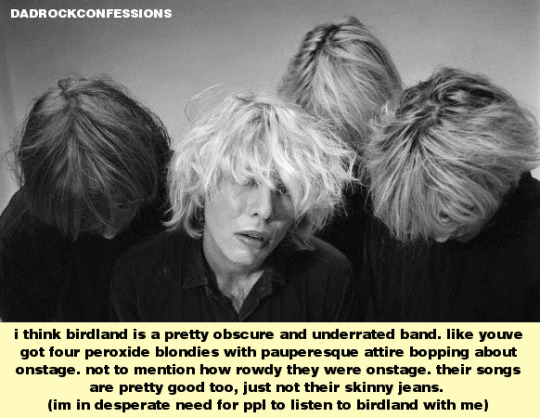
9 notes
·
View notes
Text

Robert Mapplethorpe in front of his cover for Horses
12 notes
·
View notes
Photo
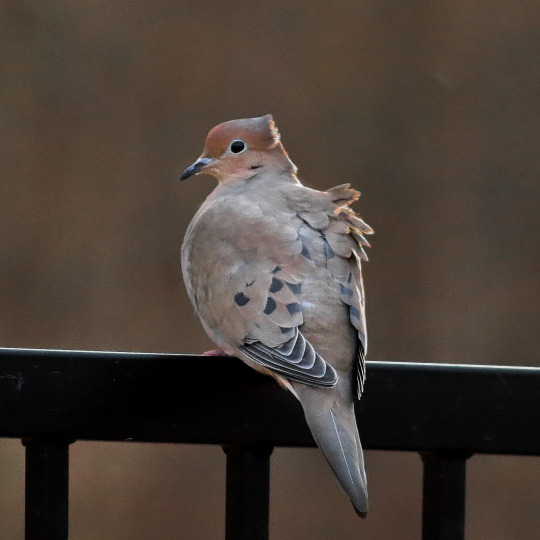
The wind remains fierce, as day turns quickly to night...
#midwest#autumn photography#mourning dove#dove#Doves#Passerine#birds#bird#birdland#birdlovers#Birdwatching#Birdworld#wildlife#wildbirds#wildbirdphotography#wildlife photography#animal photography#nature photos#nature photography#wildlife photos#wildbird#birdpics#birdposting#birdphotography#wildlifephotography#original photography on tumblr#original photography
2K notes
·
View notes
Text
Muppet Fact #691
Hoots the Owl's jazz club Birdland was a club in Detroit that he used to frequent with his grandmother. The Sesame Street location opened the year following this initial mentioning.

Sources:
Sesame Street. Episode 2209. April 24, 1986.
Sesame Street. Episode 2260. January 2, 1987.
#muppet facts oc#jim henson#the muppets#muppets#muppet facts#fun facts#sesame street#childrens tv#Birdland#hoots the owl
46 notes
·
View notes
Text
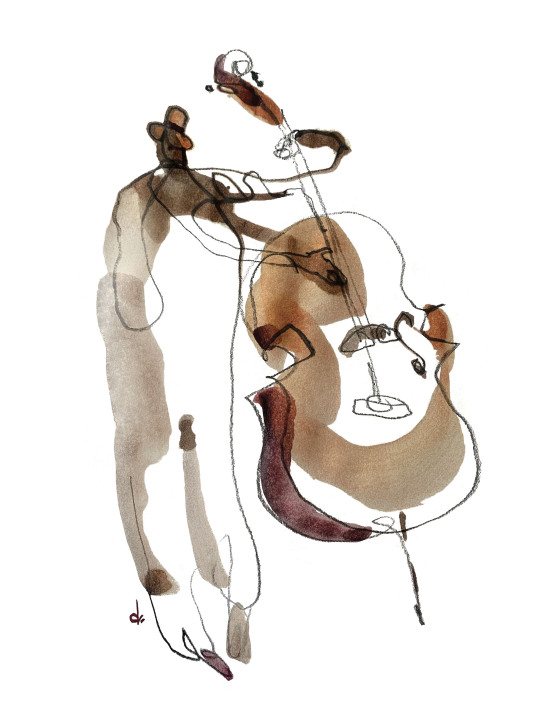
5 notes
·
View notes
Text
youtube
RIP Wayne Shorter.
This takes me back to when I was like 16 or 17. Quietly sneak in the house stoned as hell, get to my room and listen to Weather Report in my headphones. Sweet.
#Youtube#weather report#wayne shorter#jaco pastorius#airto#stoned#jaco is so cool#the room is spinning#birdland#jazz
25 notes
·
View notes
